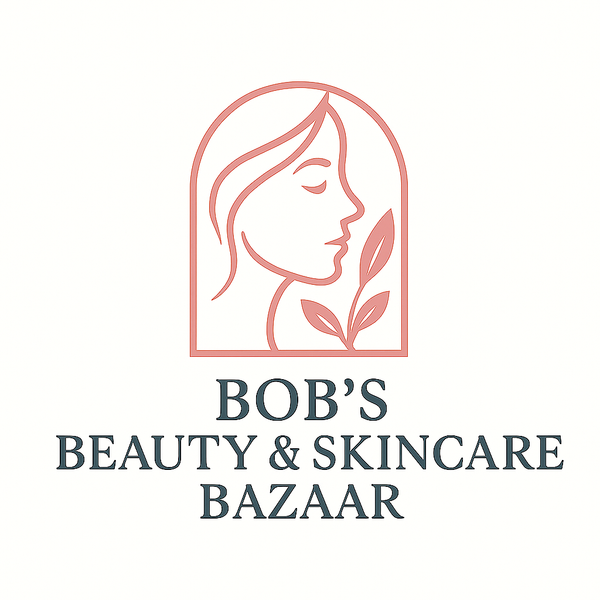Can Diet and Lifestyle Changes Really Improve Acne and Problem Skin?
Acne is one of the most common skin conditions worldwide, affecting people of all ages—not just teenagers. While genetics, hormones, and skincare products play significant roles, researchers and dermatologists increasingly recognize the powerful impact of diet and lifestyle changes that improve acne and problem skin.
From the foods we eat to the stress we carry, daily choices influence how our skin behaves. By understanding this connection, you can take a holistic approach that addresses root causes instead of just surface symptoms.
This guide explores how nutrition, habits, and everyday routines may help prevent breakouts and improve overall skin health.
Understanding Acne and Problem Skin
What Causes Acne?
Acne develops when:
-
Excess sebum (oil) clogs pores.
-
Dead skin cells build up and trap bacteria.
-
Inflammation develops, leading to pimples, blackheads, or cysts.
Hormones, genetics, and external irritants can intensify the cycle.
Why Lifestyle and Diet Matter
The skin is the body’s largest organ, and it reflects internal health. Imbalances in blood sugar, hormones, digestion, or stress levels can all appear on the skin as inflammation, breakouts, or sensitivity.
The Link Between Diet and Acne
High Glycemic Index (GI) Foods
-
Foods like white bread, sugary drinks, and processed snacks spike blood sugar.
-
This triggers insulin and IGF-1 (insulin-like growth factor), increasing oil production and inflammation.
-
Studies show people on a low-GI diet often report fewer acne flare-ups.
Dairy Products and Acne
-
Dairy, especially skim milk, may aggravate acne due to hormones and bioactive molecules.
-
Some studies suggest a link between frequent dairy intake and increased breakouts.
-
Fermented dairy (like yogurt or kefir) may have less impact.
Omega-3 vs. Omega-6 Fatty Acids
-
Omega-6s (found in vegetable oils, fried foods, processed snacks) may fuel inflammation.
-
Omega-3s (from fatty fish, flaxseeds, chia, walnuts) help reduce inflammation and support clear skin.
Micronutrients That Matter
-
Zinc: Supports wound healing and reduces inflammation. Found in pumpkin seeds, legumes, and shellfish.
-
Vitamin A: Regulates cell turnover (sweet potatoes, carrots, spinach).
-
Vitamin E and C: Antioxidants that protect against oxidative stress.
-
Probiotics: Improve gut health, which is linked to skin balance.
Lifestyle Habits That Influence Acne
Stress and Hormonal Fluctuations
-
Stress triggers cortisol, which can increase oil production and inflammation.
-
Chronic stress weakens skin’s ability to heal.
-
Stress management practices—yoga, meditation, breathing exercises—can lower flare-ups.
Sleep and Skin Repair
-
Sleep is when skin repairs itself.
-
Lack of quality sleep increases stress hormones and inflammation.
-
Aim for 7–9 hours per night to support a clearer complexion.
Exercise and Circulation
-
Regular movement improves blood flow, nourishing skin cells.
-
Sweating helps flush toxins but always cleanse afterward to avoid clogged pores.
Hydration
-
Adequate water intake keeps skin supple and helps regulate oil balance.
-
Dehydration can make acne appear more irritated and inflamed.
How Gut Health Connects to Acne
The Gut-Skin Axis
-
Poor gut health can increase systemic inflammation, which worsens acne.
-
Dysbiosis (imbalance of gut bacteria) is linked to skin flare-ups.
Foods That Support Gut Balance
-
Probiotic-rich foods: kimchi, sauerkraut, miso, yogurt.
-
Prebiotics: garlic, onions, asparagus, bananas.
-
Fiber-rich foods: whole grains, legumes, vegetables.
Practical Diet and Lifestyle Changes to Improve Acne
Step 1 – Balance Blood Sugar
-
Replace refined carbs with whole grains.
-
Choose fruits over sugary snacks.
-
Pair carbs with protein or healthy fat to slow absorption.
Step 2 – Reduce Inflammatory Foods
-
Limit fried foods, fast food, and processed snacks.
-
Watch for hidden sugars in sauces, drinks, and packaged foods.
Step 3 – Add Skin-Loving Nutrients
-
Eat colorful vegetables and fruits daily.
-
Include zinc-rich foods weekly.
-
Incorporate omega-3 fatty acids for anti-inflammatory benefits.
Step 4 – Support Gut Health
-
Try fermented foods regularly.
-
Reduce unnecessary antibiotics (when possible).
-
Consider probiotics (after consulting a healthcare provider).
Step 5 – Prioritize Rest and Stress Management
-
Create a consistent sleep schedule.
-
Practice mindfulness or journaling.
-
Engage in physical activity you enjoy.
Myths About Diet, Lifestyle, and Acne
Myth 1 – Chocolate Always Causes Breakouts
-
Dark chocolate in moderation isn’t linked strongly to acne.
-
It’s more likely the added sugar and dairy in milk chocolate.
Myth 2 – Greasy Foods Cause Oily Skin
-
Eating fried foods doesn’t directly make skin oily.
-
However, excess omega-6 oils can worsen inflammation.
Myth 3 – Drinking More Water Cures Acne
-
Hydration supports healthy skin but doesn’t cure acne alone.
-
It works best alongside balanced nutrition and good lifestyle habits.
FAQs About Diet and Lifestyle for Acne
Can diet alone clear acne?
Not always. Acne is multifactorial—diet helps, but hormones, genetics, and skincare matter too.
How long does it take to see improvements?
Most people notice changes in 8–12 weeks of consistent lifestyle and diet shifts.
Should I cut out all dairy and sugar?
Not necessarily. Some people tolerate them better than others. It’s best to test elimination gradually and track results.
Do supplements help acne?
Some supplements (zinc, probiotics, fish oil) may help, but whole foods should be the foundation.
Final Thoughts – A Holistic Approach to Clearer Skin
While no single food or habit guarantees flawless skin, science supports the connection between diet and lifestyle changes that improve acne and problem skin.
By balancing blood sugar, reducing inflammation, supporting gut health, managing stress, and practicing consistent skincare, you give your skin the best chance to heal from the inside out.
Clear skin isn’t about perfection—it’s about small, sustainable changes that support overall health. With patience and consistency, those changes often reflect in a calmer, clearer complexion.
And to discover the best beauty and skincare products, we would love you to visit our affiliate links below.
